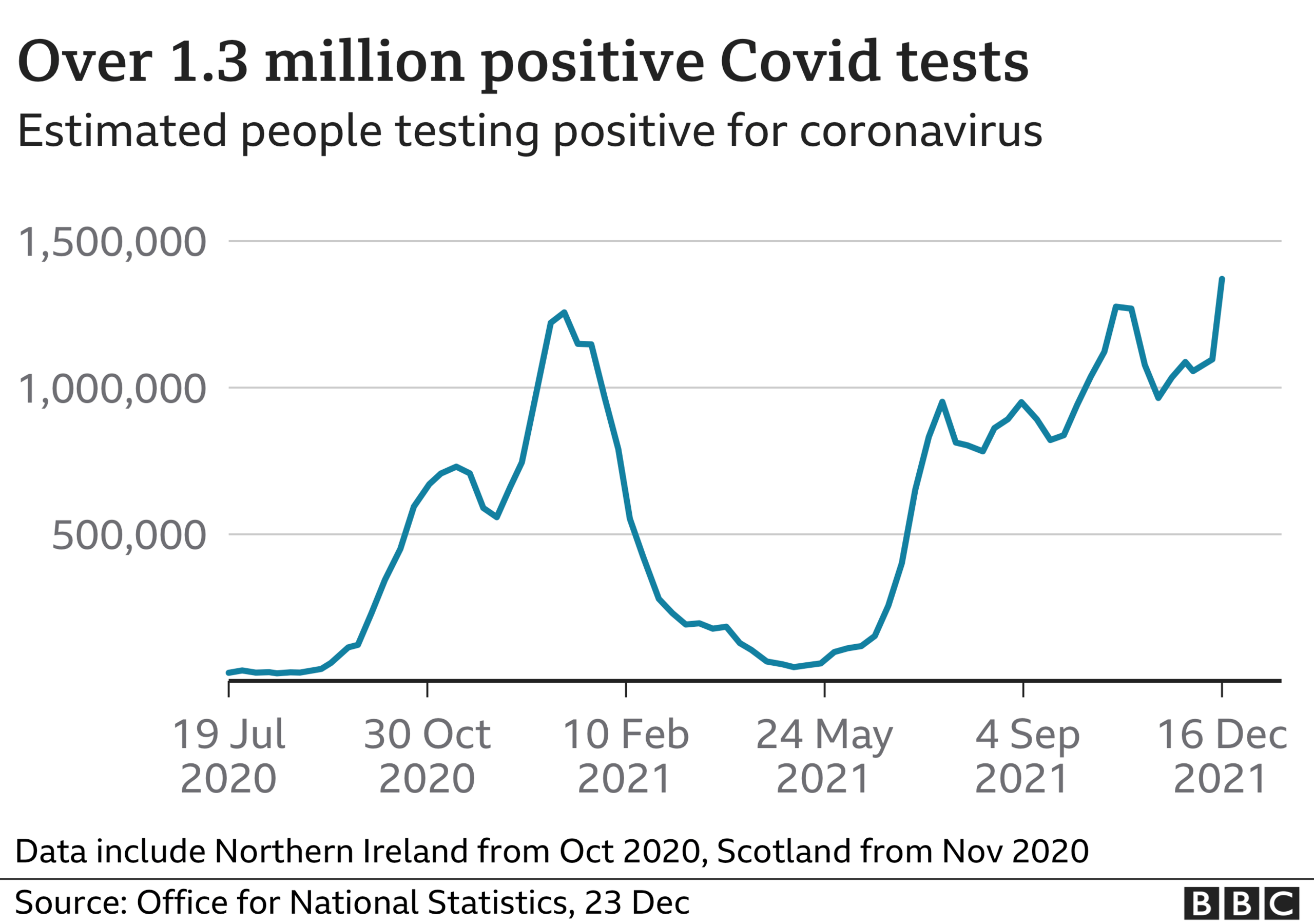Omicron: Half of colds will be Covid, warn UK researchers
- Published

If you have a sore throat, runny nose and a headache there is a good chance it will be Covid, warn UK researchers.
The Zoe Covid study team has been tracking the pandemic using feedback from the general public, and estimates half of people with cold-like symptoms actually have Covid.
They describe an "explosion" of Covid cases over the last week, driven by the new Omicron variant.
About 144,000 people a day are catching it and then feeling unwell.
For most, Covid is a mild disease. Some get no symptoms at all.
But it can still cause very serious illness in some people, including those who have not been vaccinated.
If you have cold-like symptoms, take a Covid test, says lead scientist Prof Tim Spector.
"The number of new symptomatic cases has exploded over the last week," he said.
"For most people, an Omicron positive case will feel much more like the common cold, starting with a sore throat, runny nose and a headache. You only need to ask a friend who has recently tested positive to find this out.
"We need to change public messaging urgently to save lives."
The UK reported 106,122 new Covid cases on Wednesday - exceeding 100,000 on a single day for the first time.
With infections doubling every two to three days, experts say, health officials are concerned about the pressure this could put on the NHS.
Preliminary studies suggest the Omicron coronavirus variant is milder, with fewer people getting severely ill than with other variants.
But a massive wave of infections would still mean many people needing hospital care, as well as lots of doctors and nurses being off sick with Covid.
People are being advised to do rapid Covid tests before meeting up with friends and family at Christmas.
Lateral flow tests help to find cases in people who may have no symptoms but are still infectious, meaning they can give the virus to others.

Latest estimates suggest that more than 1.3 million people in the UK would have tested positive for coronavirus in the week ending 16 December. This is the highest level of infections recorded by the Office for National Statistics (ONS) since the survey started.
This is 2.1% of the population, or one in 45 people in the latest week in England.
The ONS say the trends for estimated Covid-19 infections increased in England and Scotland, and were uncertain in Wales and Northern Ireland.
The rates of people estimated to be testing positive for coronavirus across the UK in that seven-day period were:
one in 45 in England
one in 55 in Wales
one in 50 in Northern Ireland
one in 70 in Scotland
Related topics
- Published5 April 2022

- Published6 April 2022
